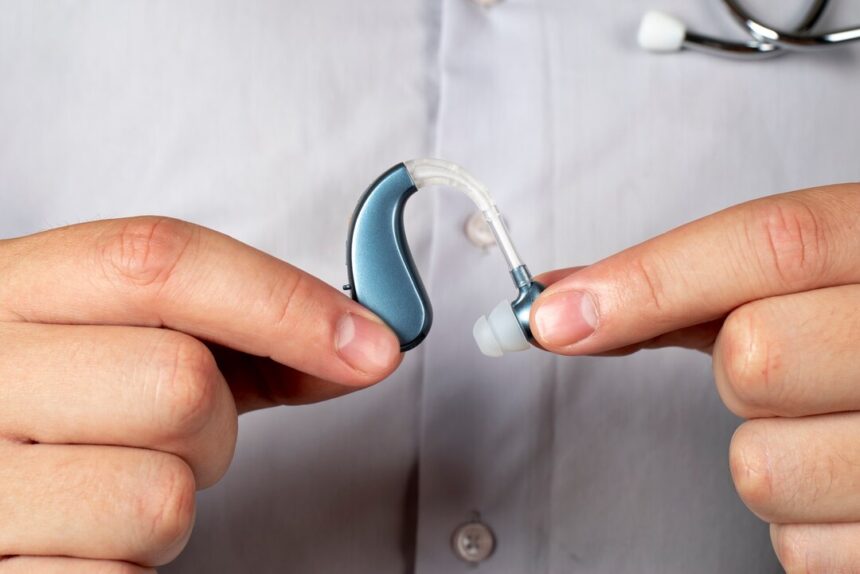Meniere’s disease is a chronic inner ear disorder characterized by recurrent episodes of vertigo, hearing loss, tinnitus, and a sensation of fullness or pressure in the ear. Managing the symptoms of Meniere’s disease can be challenging, but with the right strategies and lifestyle modifications, individuals can minimize the impact of the condition on their daily lives. In this article, we’ll explore 10 effective ways to manage Meniere’s disease and improve quality of life.
- Dietary Modifications:
Certain dietary factors, such as salt, caffeine, alcohol, and processed foods, can exacerbate symptoms of Meniere’s disease. To reduce the frequency and severity of vertigo episodes, individuals with Meniere’s disease are advised to follow a low-sodium diet and limit their intake of triggering substances. - Stress Management:
Stress can trigger or worsen symptoms of Meniere’s disease, including vertigo and tinnitus. Practicing stress-reduction techniques such as meditation, deep breathing exercises, yoga, and progressive muscle relaxation can help alleviate symptoms and improve overall well-being. - Hydration:
Maintaining adequate hydration is essential for managing Meniere’s disease symptoms, as dehydration can exacerbate vertigo and dizziness. Drinking plenty of water throughout the day can help regulate fluid balance in the body and reduce the severity of symptoms. - Medications:
Medications may be prescribed to manage specific symptoms of Meniere’s disease, such as vertigo, nausea, and motion sickness. Commonly prescribed medications include diuretics, antihistamines, and anti-nausea drugs. It’s essential to work closely with a healthcare provider to determine the most appropriate medication regimen for individual needs. - Vestibular Rehabilitation Therapy (VRT):
VRT is a specialized form of physical therapy designed to improve balance, reduce vertigo, and enhance functional mobility in individuals with vestibular disorders, including Meniere’s disease. A trained vestibular therapist can develop a personalized exercise program to address specific balance deficits and improve overall vestibular function. - Hearing Aids:
Hearing loss is a common complication of Meniere’s disease, and hearing aids may be recommended to improve communication and quality of life for individuals with significant hearing impairment. Hearing aids can amplify sounds and enhance speech clarity, making it easier to engage in conversations and social activities. - Inner Ear Pressure Regulation:
Some individuals with Meniere’s disease find relief from symptoms by using techniques to regulate inner ear pressure, such as the Valsalva maneuver or the Epley maneuver. These maneuvers involve specific head and body movements designed to alleviate pressure in the inner ear and reduce vertigo. - Lifestyle Modifications:
Making lifestyle changes to minimize triggers and reduce stress can help manage Meniere’s disease symptoms effectively. This may include getting an adequate amount of sleep, avoiding sudden movements or rapid changes in position, and limiting exposure to loud noises and environments with strong odors. - Supportive Devices:
Assistive devices such as canes, walkers, and balance braces can help individuals with Meniere’s disease maintain stability and prevent falls during vertigo episodes. Additionally, devices such as bed wedges or positional pillows can help individuals maintain a comfortable sleeping position and reduce symptoms of vertigo and dizziness. - Support Networks:
Living with Meniere’s disease can be challenging, and having a strong support network can make a significant difference in coping with the condition. Connecting with others who have Meniere’s disease through support groups, online forums, or social media platforms can provide valuable peer support, encouragement, and practical tips for managing symptoms.
While Meniere’s disease can be disruptive and challenging to manage, individuals can take proactive steps to minimize the impact of the condition on their daily lives. By implementing a combination of lifestyle modifications, stress-management techniques, medical interventions, and supportive strategies, individuals with Meniere’s disease can improve their quality of life and regain a sense of control over their health and well-being. It’s essential to work closely with healthcare providers to develop a personalized management plan that addresses individual needs and preferences effectively. With dedication, perseverance, and support, individuals with Meniere’s disease can successfully navigate the challenges of living with this chronic condition.










